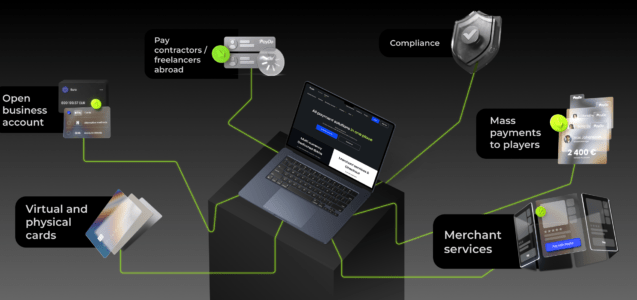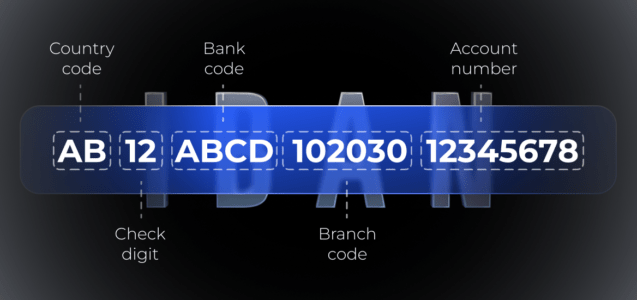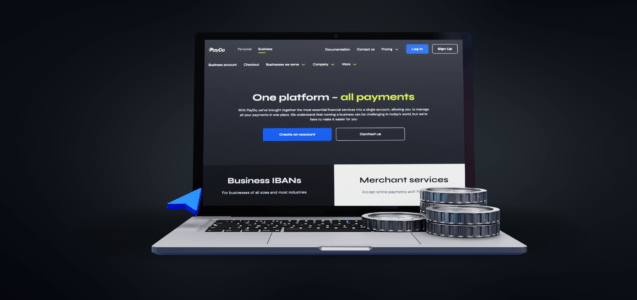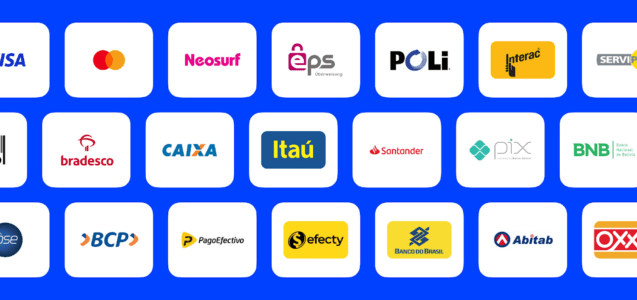Many businesses are turning to digital solutions to manage their finances, replacing traditional banking methods. However, this shift has brought new challenges, especially for the IT industry. According to Statista, there were over 4.8 million IT companies worldwide, indicating a vast market navigating these challenges.
This case study examines the top four obstacles IT companies encounter when opening a business account and shows how PayDo, a reputable electronic money institution (EMI), helps its clients successfully overcome these challenges.
1. Challenge with Opening a Business Account
Opening a business account can be a daunting task, especially for IT companies that operate internationally. The process often involves extensive paperwork, due diligence checks, and compliance with various regulatory requirements. Moreover, many banks are hesitant to service businesses that operate in high-risk industries or regions due to increased regulatory scrutiny and potential reputational risk.
Consider the case of a hypothetical IT company operating globally. Despite its successful operations, opening a business account posed a significant challenge. The process was complex and time-consuming, often requiring extensive due diligence checks and compliance with various regulatory requirements. Moreover, many banks hesitated to service this company due to its operations in high-risk industries and regions. This scenario is common among IT companies, underscoring the need for streamlined solutions like PayDo.
PayDo Solution: PayDo, an FCA-regulated UK-based EMI offers a simplified process for opening a business account. With PayDo, businesses can manage all their financial operations from a single dashboard, eliminating the need for multiple contracts and points of contact. This not only makes financial management easy but also enhances efficiency and productivity. Moreover, with PayDo non-residents can open a business account remotely. Such a process saves a great deal of time and effort.
2. Challenge with the Number of Documents Needed for Opening a Business Account
The process of opening a business account often requires a significant amount of documentation. This can include business licenses, articles of incorporation, partnership agreements, and more. Gathering and submitting these documents can be time-consuming and complex, particularly for businesses operating in multiple jurisdictions.
Consider the case of a hypothetical IT company with a global presence. The company found that the sheer volume of documentation required to open a business account was a significant hurdle. The need to provide business licenses, articles of incorporation, partnership agreements, and more for each jurisdiction they operated in was time-consuming and complex. This complexity was compounded by the need to ensure that each document complied with the specific regulations of each jurisdiction.
PayDo Solution: PayDo’s online and paperless services streamline the account opening process. The platform’s user-friendly interface makes it easy for businesses to upload required documents and track the progress of their application. This reduces the administrative burden and speeds up the account opening process.
3. Challenge with Long Waiting for Verification of Business Account
The verification process for a business account can be lengthy, often taking several weeks or even months. This delay can disrupt business operations, particularly for IT companies that must quickly set up payment systems for their clients.
Consider the case of a hypothetical IT company with a global presence. The company found that the verification process for opening a business account was a significant challenge. Due to the extensive due diligence and compliance checks involved, traditional banks often take several weeks or even months to verify and approve a business account. This delay can disrupt business operations, particularly for IT companies that must quickly set up payment systems for their clients.
PayDo Solution: PayDo’s advanced technology and automated processes significantly reduce the time required for account verification. The platform’s efficient workflow allows for quick verification, enabling businesses to start using their account sooner.
4. Challenges with Payouts and Incoming Payments from High-Risk Countries
IT companies operating globally often need to handle payments from high-risk countries. These transactions can pose significant challenges, as many banks impose strict controls on payments to and from these regions due to concerns about money laundering and other financial crimes.
Consider the case of a hypothetical IT company with a global presence. The company often needed to handle payments from countries that are considered high-risk due to concerns about financial crimes such as money laundering. These transactions posed significant challenges as many banks imposed strict controls on payments to and from these regions. This often resulted in delayed payments, increased scrutiny, and sometimes, the refusal of transactions.
PayDo Solution: PayDo supports local and cross-border transfers in over 35 currencies across 150 countries. The platform uses advanced anti-fraud measures to ensure the safety and integrity of all transactions. This includes conducting thorough due diligence on customers, monitoring transactions for suspicious activities, and implementing robust security protocols to prevent unauthorized access and data breaches.
Conclusion
Opening a business account can be daunting for IT companies, especially those with a global presence. However, there are solutions available to address these challenges effectively. PayDo offers unique services and advanced technology that simplifies opening a business account.
By streamlining the process and ensuring transaction safety and integrity, PayDo allows IT companies to focus on their core business operations while caring for their financial needs. If you’re an IT company struggling to open a business account, consider PayDo as your financial partner.
Contact us today to learn more about our services and how we can help you overcome your banking challenges.
FAQ
What makes PayDo different from traditional banks?
PayDo combines neobanking, local and international money transfers, anti-fraud measures, checkout merchant services, and mass payments in one platform. This comprehensive approach allows PayDo users to have all the services they need in one place.
How does PayDo ensure the security of transactions?
PayDo uses advanced anti-fraud measures, including thorough due diligence on customers, transaction monitoring, and robust security protocols. PayDo is also regulated by the UK Financial Conduct Authority (FCA), ensuring compliance with the highest regulatory standards.
Can I handle international transactions with PayDo?
Yes, PayDo supports local and cross-border money transfers in over 35 currencies across 150 countries. Besides, with the platform you get access to well-known cross-border payment schemes like SEPA, SEPA instant, Cross-border, BACS, FPS, and Target2.














































































